
DISCO Faculty
-
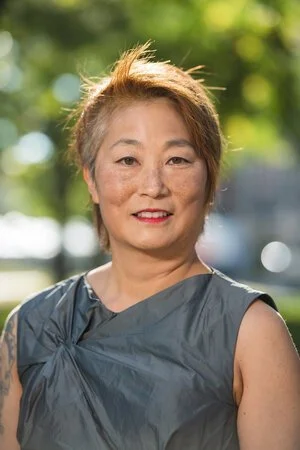
Lisa Nakamura
LEAD PRINCIPAL INVESTIGATOR
Lisa (she/her/hers) is the Gwendolyn Calvert Baker Collegiate Professor in the Department of American Culture, and the founding Director of the Digital Studies Institute, at the University of Michigan, Ann Arbor. Since 1994, Nakamura has written books and articles on digital bodies, race, and gender in online environments, on toxicity in video game culture, and the many reasons that Internet research needs ethnic and gender studies. These books include, Race After the Internet (co-edited with Peter Chow-White, Routledge, 2011); Digitizing Race: Visual Cultures of the Internet (Minnesota, 2007); Cybertypes: Race, Ethnicity, and Identity on the Internet (Routledge, 2002); and Race in Cyberspace (co-edited with Beth Kolko and Gil Rodman, Routledge, 2000). In November 2019, Nakamura gave a TED NYC talk about her research called “The Internet is a Trash Fire. Here’s How to Fix It."
-

Rayvon Fouché
CO-PRINCIPAL INVESTIGATOR
Rayvon Fouché (he/him/his) holds a joint appointment as Professor of Communication Studies and Professor in the Medill School of Journalism, Media, and Integrative Marketing Communications at Northwestern University. He authored or edited Black Inventors in the Age of Segregation (Johns Hopkins University Press, 2003), Appropriating Technology: Vernacular Science and Social Power (University of Minnesota Press, 2004), Technology Studies (Sage Publications, 2008), the 4th Edition of the Handbook of Science & Technology Studies (MIT Press, 2016), and Game Changer: The Technoscientific Revolution in Sports (Johns Hopkins University Press, 2017). He previously held faculty appointments in the Science and Technology Studies Department at Rensselaer Polytechnic Institute, the History Department and the Information Trust Institute at the University of Illinois, Urbana-Champaign, the American Studies program in the School of Interdisciplinary Studies at Purdue University, and was a postdoctoral fellow in African & African American Studies at Washington University in St. Louis. Most recently he served as Division Director of Social and Economic Sciences within the Directorate of Social and Behavioral Sciences at the National Science Foundation.
-
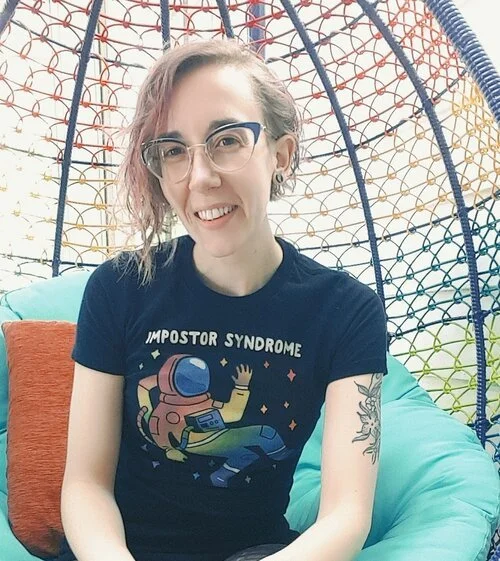
Remi Yergeau
CO-PRINCIPAL INVESTIGATOR
M. Remi Yergeau (they/them/theirs) is a Canada Research Chair in Critical Disability Studies and Communication and associate professor in Communication and Media Studies at Carleton University. Their scholarly interests include critical disability studies, rhetoric, digital studies, trans and queer studies, and neurodiversity. Yergeau currently leads the Digital Accessible Futures Lab and serves as a co-PI for Crip Computing: On Access Histories and Access Futures, which receives support from the Mozilla Foundation’s Responsible Computing Challenge. They are also a co-editor of Neurofutures along with Elizabeth Donaldson, Diana Paulin, and Ralph Savarese, which is forthcoming from MLA.
Yergeau is an autistic academic. Their knowledge of the autistic internet is informed by the scholarly and the personal: they once ran a neurodiversity blog, led a student chapter of an autistic-led org, and coordinated local protests. Their book, Authoring Autism: On Rhetoric and Neurological Queerness (Duke UP), is a winner of the 2017 Modern Language Association First Book Prize, the 2019 CCCC Lavender Rhetorics Book Award for Excellence in Queer Scholarship, and the 2019 Rhetoric Society of America Book Award.
-

Catherine Knight Steele
CO-PRINCIPAL INVESTIGATOR
Catherine Knight Steele (she/her/hers) is an Associate Professor of Communication at the University of Maryland - College Park, where she directs the Black Communication and Technology Lab (BCaT) and the Digital Studies in Art & Humanities graduate certificate program. Her research focuses on race, gender, and media, specifically emphasizing Black culture, digital communication, and technology. She moves beyond examinations of representation in the media to consider the relationship between resistance and joy as technologies of liberation. Catherine’s research on the Black blogosphere, digital discourses of resistance and joy, and digital Black feminism has been published in such journals as Social Media + Society, Information, Communication and Society, Feminist Media Studies, and Rhetoric Society Quarterly. Her award-winning book, Digital Black Feminism (NYU Press 2021), examines the relationship between Black women and technology as a centuries-long gendered and racial project in the U.S. Her co-authored second book, Doing Black Digital Humanities with Radical Intentionality was published in 2023 with Routledge. Catherine is a 2024-26 Just Tech Fellow working on the "Automating Black Joy" project, which critically examines the relationship between A.I., education, and Black joy.

DISCO Staff
-

Ann Smith
DISCO NETWORK ADMINISTRATOR
Ann Smith (she/her/hers) joined DSI as the DISCO Network Administrator in January 2024. She holds an MBA from the Ross School of Business at UM. Outside of work, she loves to travel, enjoy good food, and spend time with friends and family.
Contact: annsmith@umich.edu
-
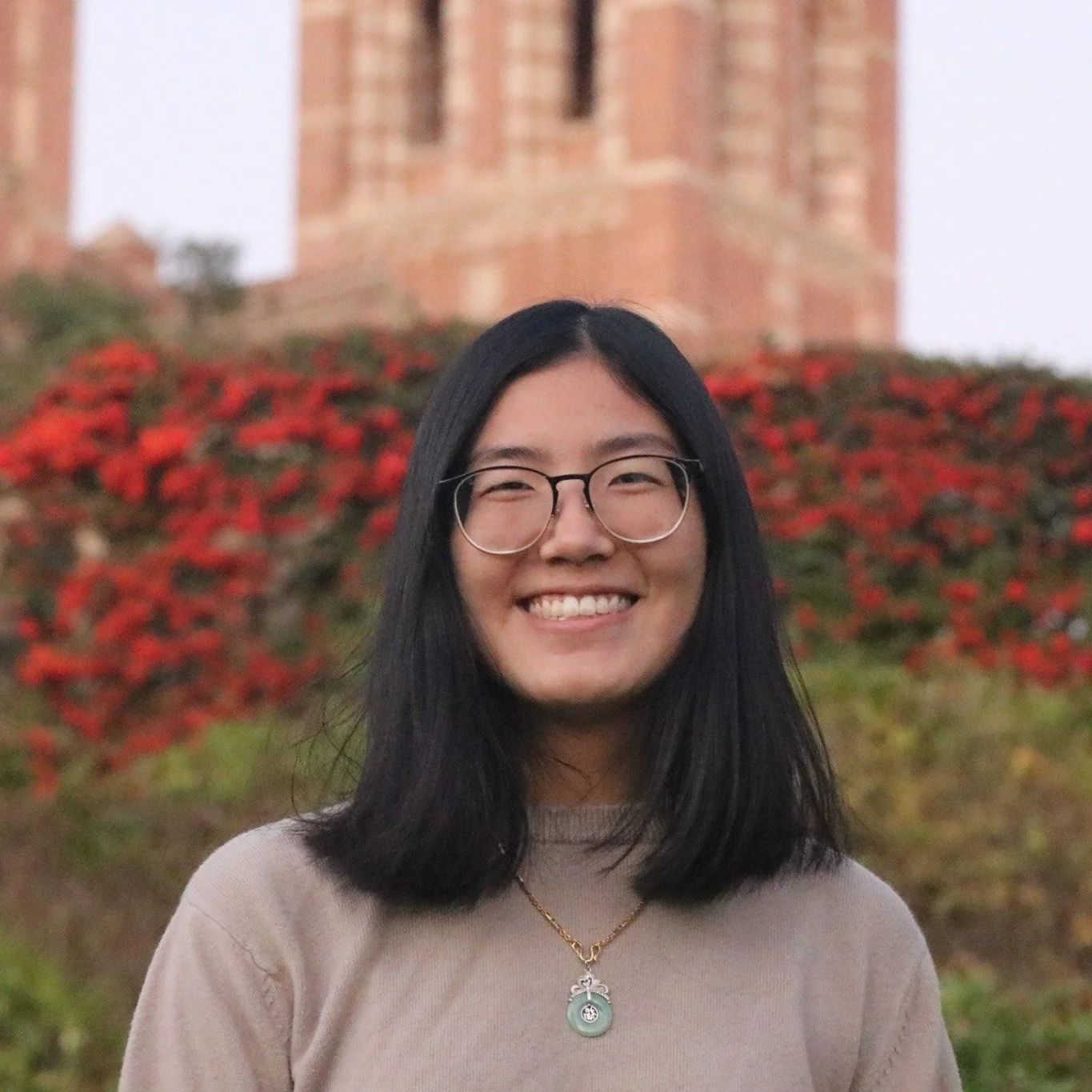
Cherice Chan
DISCO NETWORK PROGRAM COORDINATOR
Cherice Chan (she/they) joined the Digital Studies Institute to serve as the DISCO Network Program Coordinator in 2023. She graduated from the University of California, Los Angeles (UCLA) in 2022 with a B.A. in Psychology and a minor in Anthropology. Prior to coming to the DSI, Cherice served as the project coordinator and youth advisory board director for a research initiative about racial socialization processes among Asian American youth. Her research interests include the racial socialization of youth of color, racialized experiences of Asian Americans, and mainstream narratives about race, ethnicity, and culture. Outside of work, Cherice enjoys traveling, reading, collecting trinkets, and grocery shopping.
Contact: chericec@umich.edu
-

Giselle Mills
DISCO NETWORK GRANT INITIATIVES PROGRAM COORDINATOR
Giselle Mills (she/they) currently serves as the DISCO Grant Initiatives Program Coordinator. She joined the DSI in May of 2022 as the Marketing and Communications Assistant for the Digital IDEAS Summer Institute and later became an Undergraduate Student Writer for the DSI Newsletter. She graduated from the University of Michigan in 2023 with a Bachelor of Arts with Distinction and High Honors in History, the Sweetland Minor in Writing, and a minor in Russian Language, Literature, and Culture. Following graduation, she served as the Program Assistant for Digital IDEAS 2023. Her scholarly interests include the history of fashion and textiles, archaeology, gender studies, and zoology. Outside of work, Giselle enjoys film photography, knitting, and poetry.
Contact: gimills@umich.edu
-

Atticus Spicer
DISCO NETWORK COMMUNICATION COORDINATOR
Atticus “AJJ” Spicer (they/he) serves as the DISCO Communication Coordinator. He joined DISCO in 2023 through the programming series Search Engines: Art, Tech, and Justice, for which they were an event planner and designer. Having graduated from the University of Michigan in 2024 with a B.A. in Film, Television, and Media and the Sweetland Minor in Writing, Atticus uses his skills in digital media production and analysis to further DISCO’s mission and reach. His research interests (fixations) are wide-ranging and interdisciplinary, but always center the principles of harm reduction, intersectional liberation, and public intellectualism. Outside of work, Atticus moonlights as a game dev, organizer, and creates comics.
Contact: ospicer@umich.edu
-
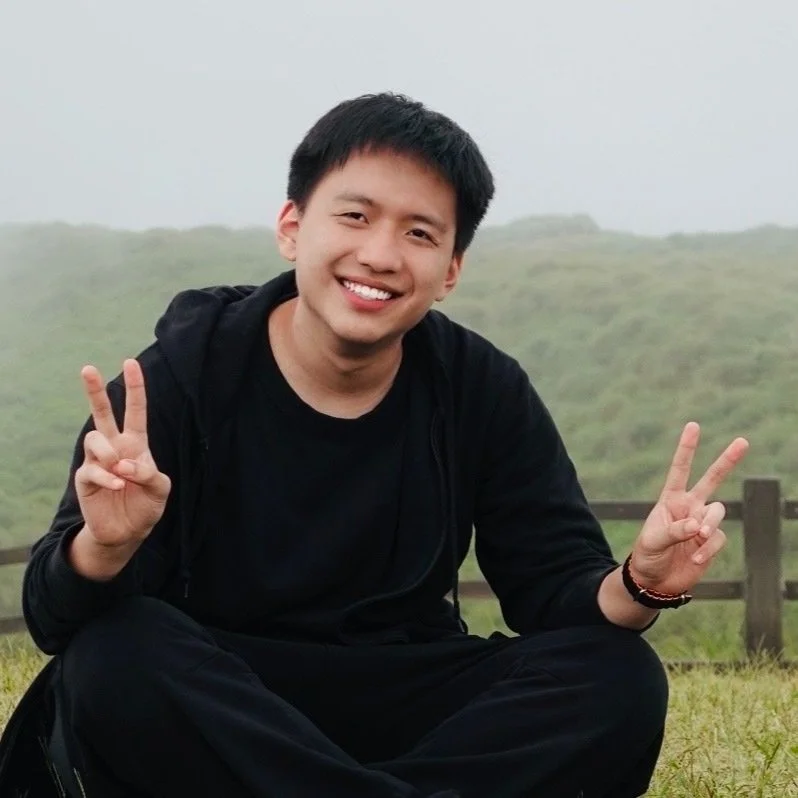
Yangzhen Ye
DISCO NETWORK PROGRAM ASSISTANT
Yangzhen (Michael) Ye (he/him) is the Program Assistant with the DISCO Network, having previously served in the same role at the Digital Studies Institute. He is currently pursuing a Master’s degree in Higher Education at the University of Michigan’s Marsal Family School of Education. Ye holds dual bachelor’s degrees in Education and Management from Soochow University. His research interests focus on equity in higher education, student-faculty interaction, and how organizational structures and cultural backgrounds shape student experiences. Outside of work, Ye enjoys Chinese painting, reading, and exploring local parks.
Contact: yeyz@umich.edu

BCaT Lab Staff
-
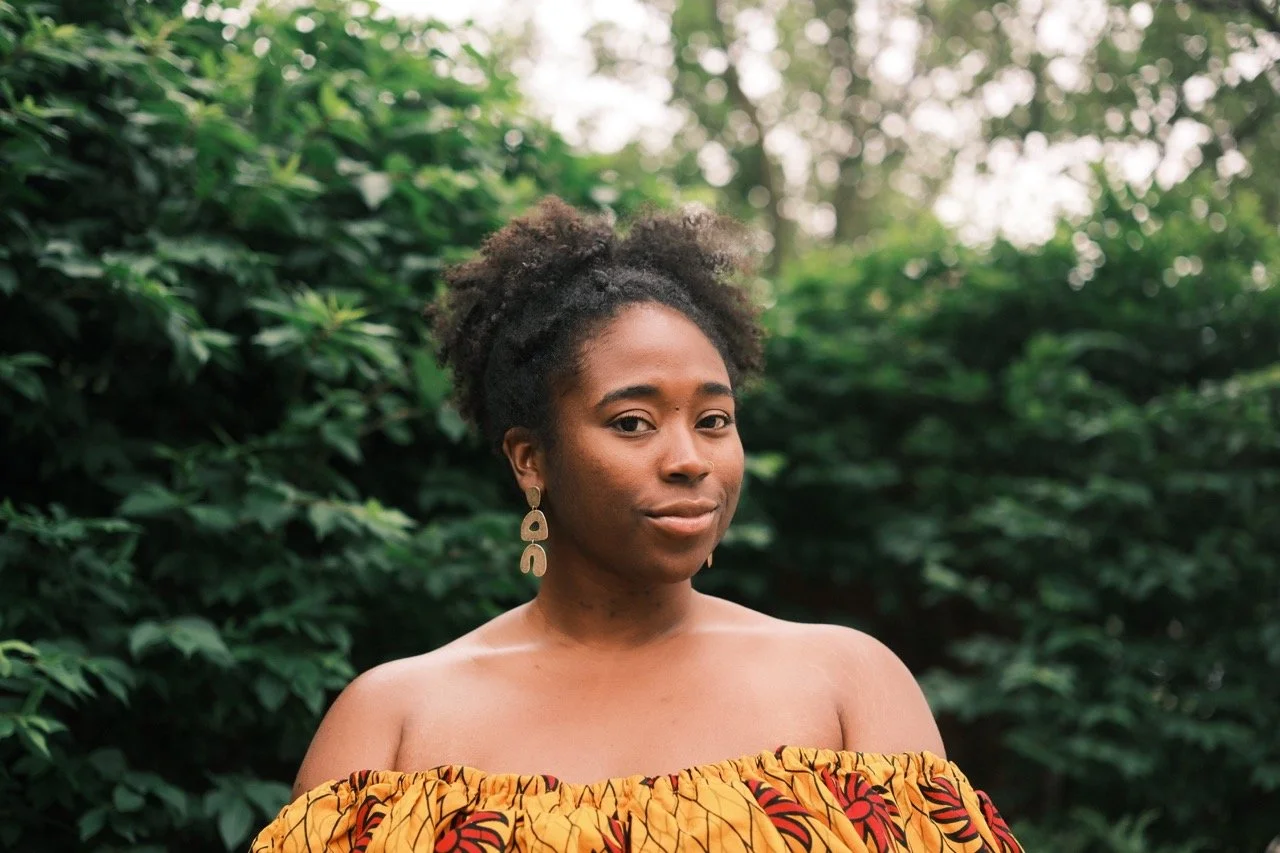
Rianna Walcott
BCAT LAB ASSOCIATE DIRECTOR
Rianna Walcott is an Assistant Professor of Communication at the University of Maryland, and a former DISCO Network Postdoctoral Fellow. An alumna of the London Arts and Humanities Partnership (LAHP), Dr. Walcott earned her PhD in Digital Humanities at King's College London for her research on Black (and British) communication practices across social media platforms with different demographics, and how different social network service affordances influence how Black users interact. She combines digital research, Black feminist praxis, decolonial studies, arts and culture, and mental health advocacy in her work. Dr. Walcott founded projectmyopia.com, a LAHP-funded digital humanities and arts project that promotes inclusivity in academia and decolonised curricula, and was co-editor of 'The Colour of Madness', an anthology about mental health inequities faced by people of colour in Britain. In the time left over, she moonlights as a professional jazz singer.
-

Andrew Lowe Mohammed
BCAT LAB GRADUATE FELLOW
Andrew Lowe is a 2nd-year Ph.D. student in the Communication department at the University of Maryland, College Park. Andrew joined the BCaT Lab in 2023 as an undergraduate research assistant. Currently, Andrew is a Graduate Fellow in the Black Communication and Technology Lab, and a Graduate Fellow for the Ronald E. McNair Scholars Program. He is a cultural studies, media studies, and digital humanities scholar who uses critical cultural rhetorical theories to explore contemporary digital communities, and media artifacts. He is currently steeped in video game studies, exploring how representation and ideologies are performed through video game mechanics and narratives. He is pursuing a Digital Studies in the Arts and Humanities certificate, through which he is excited to further his knowledge in the fields of game studies and digital ecologies.
-

Alisa Hardy
BCAT LAB GRADUATE FELLOW
Alisa Hardy is a doctoral candidate in the Department of Communication at the University of Maryland. She has served as a fellow for the Black Communication and Technology (BCaT) Lab since 2022. Her research integrates the study of critical-cultural rhetoric, digital media and technology studies, and Black feminism. Hardy earned a masters degree in Communication with a Rhetorical Leadership Concentration from the University of Wisconsin-Milkwaukee She also has received the Digital Studies in Arts and Humanities certificate and Women, Gender, and Sexuality Studies certificate from the University of Maryland. Outside of work, she enjoys spending time with family, bike riding, and caring for her two cats.
-
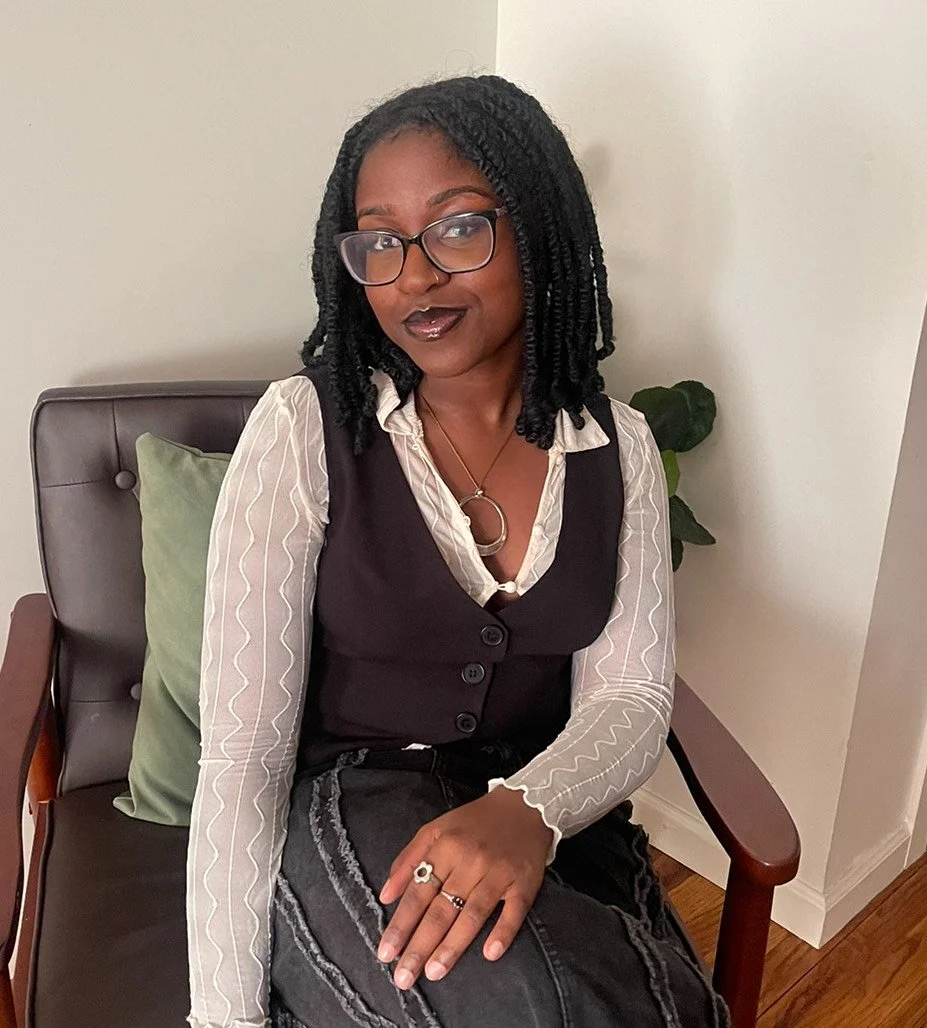
Roshida Herelle
BCAT LAB UNDERGRADUATE PROGRAM ASSISTANT
Roshida Herelle (she/they) is an interdisciplinary creative who joined the Black Communication and Technology (BCaT) Lab as an Undergraduate Assistant in February 2024. They plan on graduating in 2025 with their Bachelor of Arts in Technology and Information Design from the University of Maryland. Their academic work focuses on how design and technology can be used to create social impact initiatives that uplift marginalized communities. Her most recent work is The Place Keeps Score, a collaborative zine that examines the ways that place can shape BIPOC queer identities. Before joining the BCaT Lab, she served as Design Co-Director for Technica: the largest hackathon for underrepresented genders in tech. Outside of work, she loves listening to soul and reggae music, walking on nature trails, and going thrifting!
-

Arianna Meza
BCAT LAB UNDERGRADUATE PROGRAM ASSISTANT
Arianna Meza (Ari, She/Her) joined the BcaT Lab in Fall 2024 for their Social Media Undergraduate role. She is majoring in Communications with a focus on Public Relations and is on track to graduate in Spring 2025. In addition, she is pursuing a Master’s in Management through the Smith Business School. Ari has gained valuable experience through internships with 740 Project, Amtrak, and the Recording Industry Association of America. She also holds leadership roles as Treasurer of the Public Relations Student Society of America and Vice President of the Maryland Music Business Society. Currently, she serves as the Instagram Manager and works as an Academic Consultant for the Oral Communication Center.

DAF Lab Staff
-

David Adelman
DAF LAB POSTODOCTORAL FELLOW
David Adelman (he/him/his) is a postdoctoral research fellow in the Digital Accessible Futures lab at the University of Michigan. His research interests center disability and crip studies, with a particular emphasis on disability media studies, digital disability cultures, disability film studies, and critical sexuality studies. Through an interdisciplinary crip studies/feminist lens, he pursues questions which emerge at the intersection of power, culture, technology, identity, and desire. His recent dissertation, “Ambivalent Pleasures: Pleasure, Desire, Authenticity, and the Production of Value in Online Disability Cultures,” examines how discourses of “desirable disability” manifest in cultural productions and Internet publics. This project traces the circulation and intensification of such discourse in popular culture across a range of audiovisual material, exploring the neoliberal commodification of identity politics that occurs and, concomitantly, is contested, online. He also maintains an artistic practice which centers experimental video and remix as a means to explore disability culture, aesthetics, and politics.
-

Kitty Geoghan
DAF LAB RESEARCH ASSOCIATE
Bio coming soon.
-

Sarah Hughes
DAF LAB RESEARCH ASSOCIATE
Sarah Hughes (she/her) received her PhD in English & Education at the University of Michigan. Her research interests center digital rhetorics, gender and discourse, gaming studies, writing pedagogy, and environmental writing. She has taught Developmental, First-Year, and Upper-Level Writing courses at U-M and various community colleges and universities in Ann Arbor and Chicago. She has served as a Graduate Student Research Assistant with the English Department Writing Program and a Sweetland Digital Rhetoric Collaborative Fellow at U-M, as well as a Communications Fellow with the Ecology Center in Ann Arbor. Her dissertation project explores women’s discursive practices for reclaiming space in online gaming ecologies
-

Lise Lao
DAF LAB RESEARCH ASSOCIATE
Lise Lao (she/they) received her Masters in English at the University of Michigan. Her research interests include queer and disabled online sociality, digital affect, surveilled subjectivities, queerness and disability in science fiction, mediation and the communicative body, and techno-orientalism. They taught first-year writing under the English Department Writing Program and have worked as a research assistant under Dr. Yergeau.
-

Pratiksha Thangam Menon
DAF LAB RESEARCH ASSOCIATE
Pratiksha Thangam Menon (she/they) is a PhD Candidate in Communication and Media program at the University of Michigan, and research assistant at the Digital Accessible Futures lab. She is a media, cultural studies, and digital humanities scholar whose analytical perspectives are informed by feminist, anti-racist, and postcolonial frameworks. Her dissertation examines the mainstreaming of supremacist ideologies through the circulation of online humor, with a specific focus on Hindutva and White supremacy. Pratiksha’s recent public-facing scholarship can be found on JSTOR Daily; she has also worked on the Library Diversity Council-award winning Anti-Racism Toolkit Team, and has collaboratively authored the DEI section of a forthcoming National Humanities Alliance report on engaging historically underrepresented students in the humanities.
-

Eric Whitmer
DAF LAB RESEARCH ASSOCIATE
Eric Whitmer (they/he) is an interdisciplinary musician, artist, and scholar interested in the intersections of music, morality, and community. Eric performs as the percussionist in Sono Trio and as the resident carillonist for Grosse Pointe Memorial Church. They are a Ph.D. Pre-Candidate in Musicology with Historical Emphasis at the School of Music, Theater, and Dance, University of Michigan. Their musicological work focuses on ways that morality gets institutionalized through processes of philanthropy, education, and care practices. Additionally, Eric is a member of the Digital Accessible Futures Lab at the University of Michigan and regularly pursues research related to disability studies and activism. In their limited spare time, Eric can be found baking some new and challenging pastry, behind a camera, taking a portrait of a friend, or on a paddleboard in one of Michigan’s many great (pun intended) lakes.
-
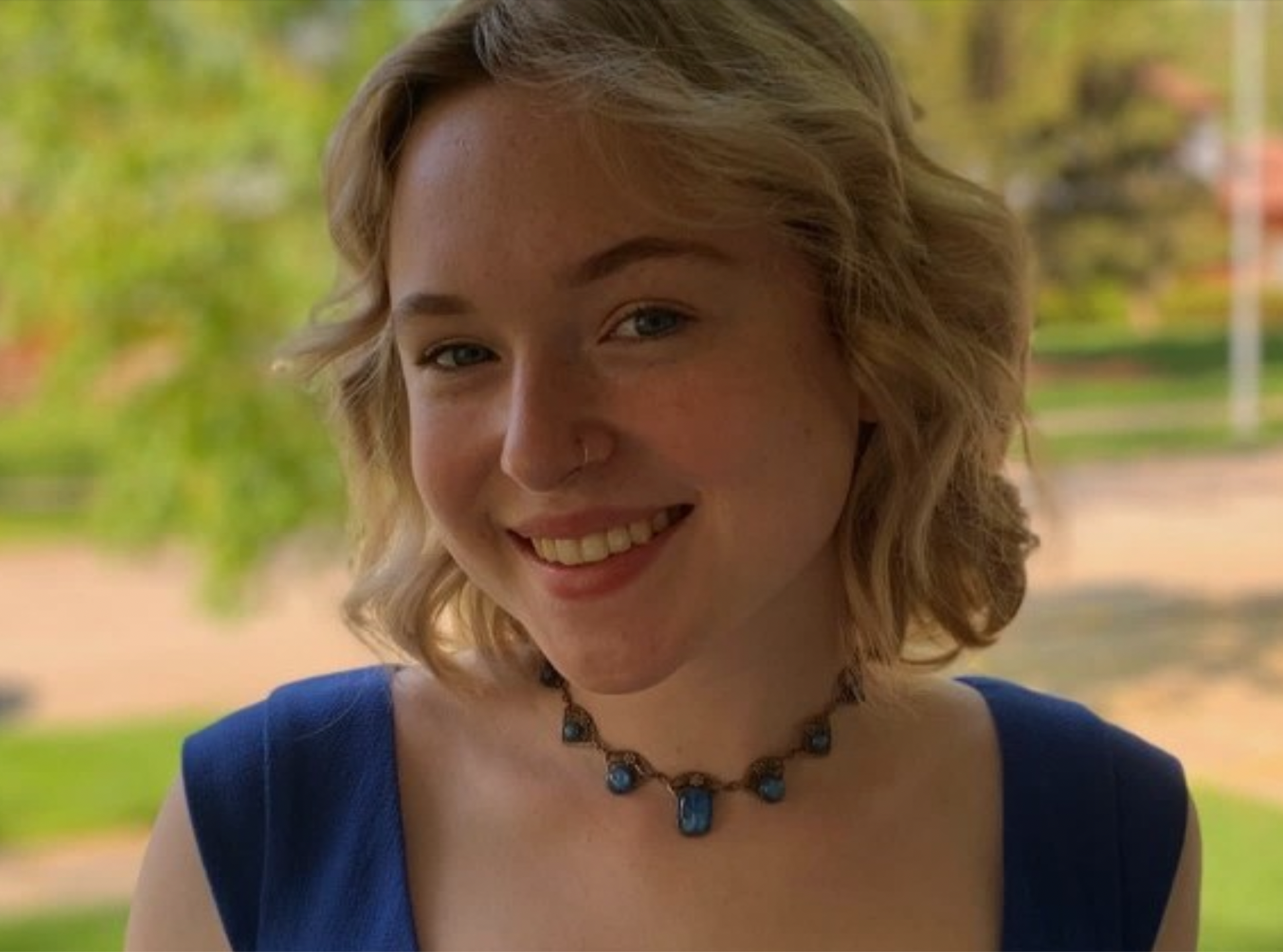
Tess Carichner
DAF LAB UNDERGRADUATE RESEARCH ASSISTANT
Tess Carichner (she/her) is a sophomore at the University of Michigan student pursuing a major in nursing and a minor in global health. Her primary interest is how ableism in healthcare settings perpetuated against neurodivergent people (particularly Autistics and those with OCD and/or ADHD) permeates other institutions and social norms. Tess aspires to become a researcher that merges the fields of disability studies and nursing science to reframe disability in healthcare education by addressing past and present abuses of the disability community. As a Women and Gender Summer Fellow and Research Scholar at the University of Michigan Undergraduate Research Opportunity Program (UROP), Tess is authoring a literature review that aims to educate healthcare professionals on the experiences of neurodivergent women and gender diverse people. She is the founder of Disability Nursing Association, an Eisenberg Family Depression Center Student Advisory Board Member, a Sweetland Writing Center Student Advisory Board member (accessibility consultant), and a member of the School of Nursing Foundational Course Initiative (accessibility consultant).

HAT Lab Staff
-

June Mia Macon
HAT LAB GRADUATE PROGRAM ASSISTANT
June Mia is a Communication Ph.D. Candidate at the University of Illinois Chicago (UIC). She holds a B.A. in Journalism with an emphasis in Public Relations from Indiana University of Pennsylvania and a minor in Spanish. She received her M.S. in Public Communication and Technology from the Department of Journalism at Colorado State University. In 2021, she published her first book chapter entitled DJ’s Gig: Affective Hip Hop Culture and Affordances of Participatory Platforms during a Global Pandemic in Sustaining Black Music and Culture during COVID-19 #Verzuz and Club Quarantine, which was edited by Dr. Niya Pickett Miller. June has also held the position of Managing Editor for the academic journal Gender + Society. Additionally, she teaches public speaking at UIC and communication courses as adjunct faculty at Loyola University Chicago. June's research interests include streaming & social networking sites, participatory platforms, gender, race, and policy. Her dissertation addresses the affordances of Twitch.tv and examines Hip Hop DJs' technocultural participation and labor. She has presented her research at academic conferences such as The Research Conference on Communications, Information and Internet Policy (TPRC), Midwest Association of Public Opinion Research (MAPOR), World Social Science Association (WSSA), Social Media + Society, Popular Culture Association (PCA), and the Association for Internet Researchers (AoIR).
-

Bright Baffour Antwi
HAT LAB GRADUATE STUDENT COLLABORATOR
Hi, I'm Bright. I am a 5th year PhD candidate in the Sports Department at the University of South-Eastern Norway. When I am not pretending to be buried in research duties, I am usually at home minding my business. Fun fact: I work as a football agent too!
As a PhD candidate in the final year of my program at the University of South-Eastern Norway (USN), my research focuses on the use of self-tracking technologies in Ghanaian fitness spaces. This interest has led me to explore the near-exclusive emphasis on quantification at the expense of qualitative elements of fitness practices. My soon-to-be-published study is based on six months of fieldwork in Ghana, with extensive primary-source data in the form of interviews, field notes, and participant observation. Beyond my graduate work, I am also a member of the Norwegian Research School on Digitalisation, Culture and Society and the USN lead on the Nordplus project on Digitalisation in the Coaching Process across Nordic-Baltic countries.
-
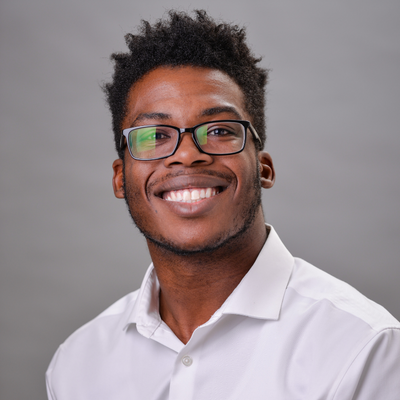
Jonathan Givan
HAT LAB GRADUATE STUDENT COLLABORATOR
Hi, I am Jonathan Givan, a 4th year Ph.D. candidate in Science and Technology Studies at Rensselear Polytechnic Institute from Chelsea, Alabama. When I am not dodging responsibilities or forgetting to submit paperwork, you can catch me bouldering at my local climbing gyms or obsessing over my well-seasoned cast iron.
As a fourth-year Ph.D. candidate at RPI and a researcher in the HAT Lab at Northwestern, I focus on the relationship between music production, knowledge production, and cultural studies. My research looks at the Akai Midi Production Center and how its innovative adoption by Black Hip Hop producers reframed popular conceptions around the technology. Using mixed methods research, I study the history of the MPC within Hip Hop, the individuals and communities that solidified its popularity, and how corporate entities responded to the success of the MPC within Black music making. The ultimate goals of my research are to make accessible resources that display the innovative and diverse thought processes behind Hip Hop music and to help develop more inclusive and accessible spaces for communal music education.
-

Karl Bullock
HAT LAB GRADUATE STUDENT COLLABORATOR
Karl Bullock is PhD candidate in Rhetoric, Media, and Publics housed in the Department of Communication Studies. He is a recipient of the Black Metropolis Graduate Assistantship, which is designed to increase capacity at Chicagoland’s Black archives and support projects that preserve and amplify Black histories and legacies. Karl is currently inventorying, digitizing, and assessing Rebuild Foundation’s collections on the South Side of Chicago.
My research focuses on the sports arena as a protest site for Black athletes in America. I am interested in the strategies utilized by Black athletes, historically and in the present, to engage in social and political movements to articulate the reclamation of their humanity, fight for civil liberties, and as a form of civic engagement. -

Catalina Farías
HAT LAB GRADUATE STUDENT COLLABORATOR
I’m Catalina, a 3rd-year Ph.D. student in Communication Studies at Northwestern. Outside of research, I enjoy binge-watching TV, painting, walking by the lake, and talking with my family in Chile. I strive to conduct research that benefits marginalized communities and creates tangible change.
As a Ph.D. student in Media, Technology, and Society at Northwestern University my research centers on the role of media technologies in the lives of marginalized and racialized communities. Specifically, I focus on uncovering the reasons these communities engage with technology, how they perceive it, and the intricate dynamics of their online interactions. I use a mixed-method research approach to reveal the intricate ways in which these groups access, use, and (re)appropriate technologies. My work aims to shed light on the importance of digital inclusion and the empowerment of underrepresented voices in the media technologies landscape with the ultimate goal of influencing technology design and policy to better serve and represent marginalized communities.
-

Genius Amaraizu
HAT LAB GRADUATE STUDENT COLLABORATOR
Hey, this is Genius Amaraizu, 1st year PhD researcher in the HAT lab at Northwestern. When you don't find me engaged in lab research, look outside, I'm making some videos for YouTube and other social media, or hanging out with friends, or just watching some documentaries.
As a Ph.D. researcher in the HAT lab at Northwestern University my research focuses on Technoculture; working between digital humanities’ and digital cultures’ intersection with contemporary democracy and developmental practices, especially as it concerns media, migration and social justice. My research primarily investigates how digital technologies are embraced as solutions within the human migration ecosystem, and captures the intersectional relatedness of marginalization and under-representation with technological developments, as well as scientific chauvinism.
-
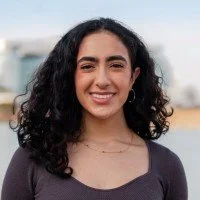
Leila Dhawan
HAT LAB UNDERGRADUATE STUDENT COLLABORATOR
Hi! I'm Leila Dhawan, a sophomore and researcher in the HAT lab at Northwestern. When I'm not researching, I'm probably stopping a stranger to pet their dog or waiting in line for coffee. You can tell I'm from New Jersey because I walk fast and often complain about the bagels in Chicago. I'm involved in various campus initiatives, like marketing for the Northwestern Dance Marathon and the UNITY fashion show. I also work as a graphic designer and freelance writer for North by Northwestern Magazine and as a graphic designer for Northwestern Admissions.
Right now, I'm researching technology refusal with Professor Fouché. This topic intrigues me because of its huge impact on society and how it affects our self-perception. By understanding why some people push back against new technologies, I hope to gain insights into my own experiences and the broader societal effects. This research will help me in my future career in PR, marketing, and graphic design, giving me a unique perspective on human behavior. My ultimate goal is to graduate from Northwestern with a dual degree in Communications and Psychology, and then pursue an MBA. I love working with people and believe that understanding them is key to being effective and empathetic in my work. I'm passionate about appreciating and leveraging the unique qualities of individuals to enhance my work and build meaningful connections.
-
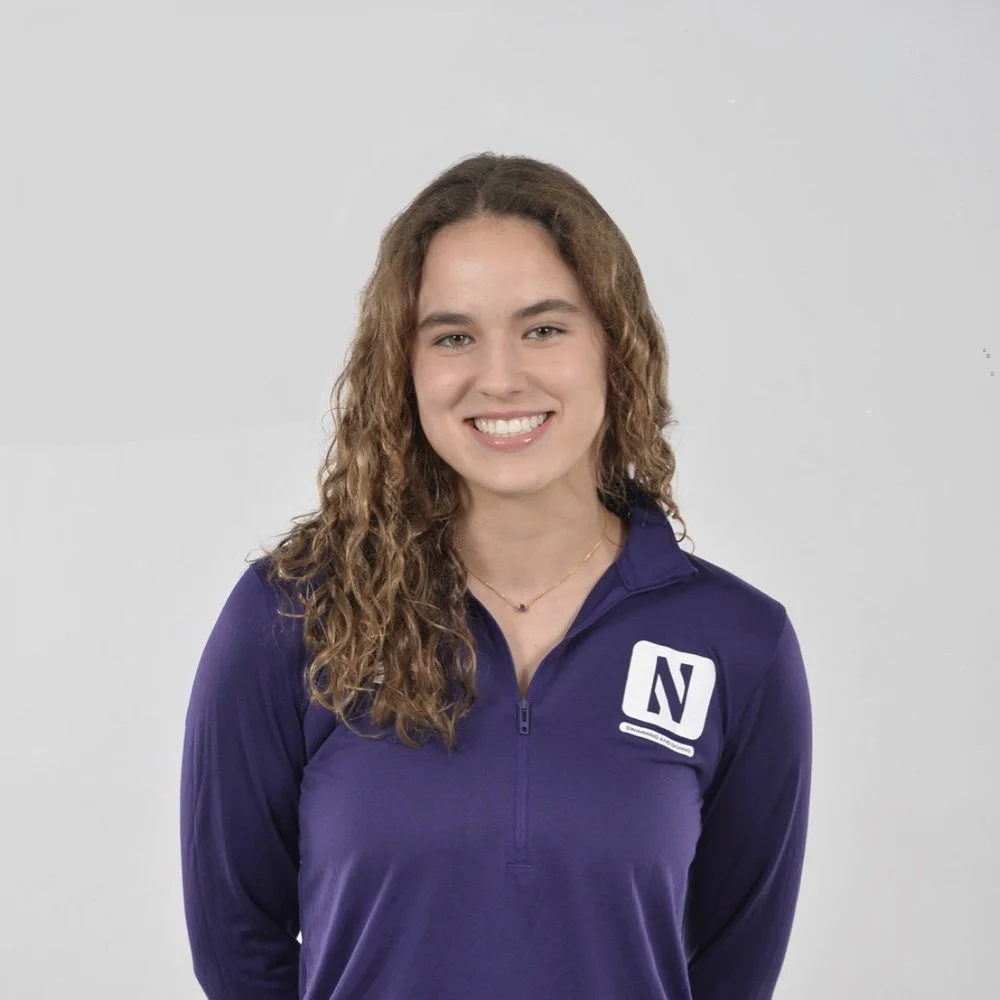
Chloe Sharpe
HAT LAB UNDERGRADUATE STUDENT COLLABORATOR
Hi, my name is Chloe Sharpe! I’m a first-year undergraduate research assistant in the HAT lab at Northwestern where I collaborate with Aria Halliday and Rayvon Fouché on The Black Woman’s Guide to Electric Vehicles project. Outside of research, you can find me diving head-first into the deep end… literally! Despite my fear of heights, I have been a competitive diver for 8 years!
As a first-year undergraduate research assistant in the HAT lab at Northwestern University, my research delves into the prerequisites for building a more equitable society. I’m driven by a deep interest in sustainable solutions and equity in technology which makes my work with Dr. Aria Halliday and Dr. Fouché, on Black Feminists freedom and Electric Vehicle usage and culture not only meaningful but also deeply fulfilling. I am committed to exploring how technology can be harnessed to create a more just and inclusive world, a mission that shapes both my current research and my future career aspirations.

Search Engines Staff
-

Jeff Nagy
SEARCH ENGINES FACULTY LEAD
Jeff Nagy is an Assistant Professor of Artificial Intelligence and Critical Data Studies in the Department of Communication and Media Studies at York University. Previously, he was a DISCO Network Postdoctoral Fellow at the University of Michigan, where he collaborated with scholars, artists, and policymakers to envision and build anti-racist and anti-ableist technological futures. He currently serves as faculty lead for Search Engines, a programming series at the University of Michigan centered around the arts, emerging technology, and social justice. He is a historian of computing and AI focused on the intersections between that history with disability and psychological and psychiatric science. He holds a PhD in Communication from Stanford University. His research has appeared in Just Tech, New Media & Society, Technology & Culture, and elsewhere.
-
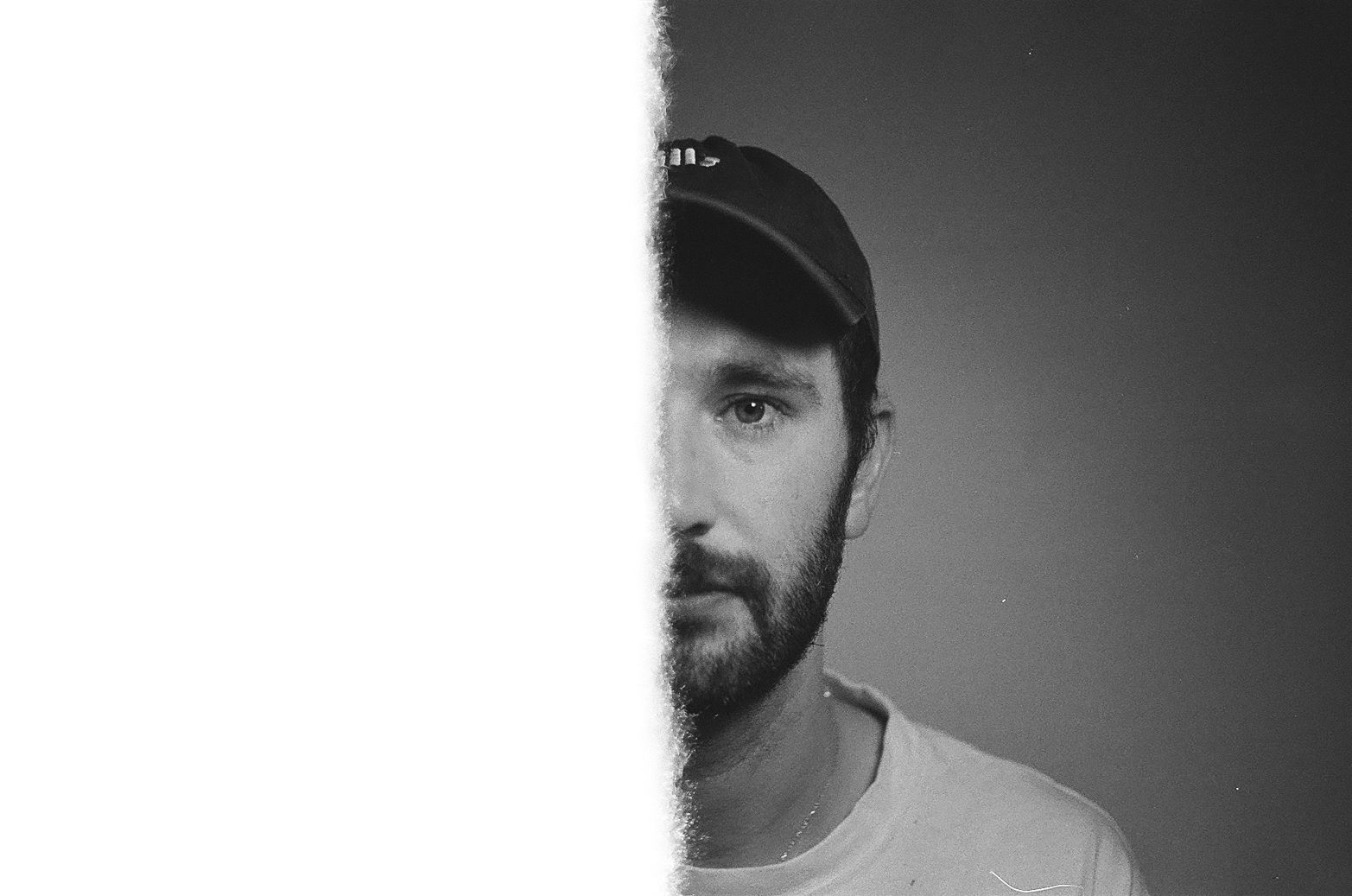
Sam McCracken
GRADUATE PROGRAM ASSISTANT
Sam McCracken is a 6th-year PhD candidate in the Department of Comparative Literature, as well as a student in the Graduate Certificate program in Digital Studies. His ongoing dissertation project, Virtually Disposable: A Theory of Digital Trash and the Question of Content, historicizes and critically interrogates shifting notions of digital disposability. That is to say, his research intervenes in and attempts to make sense of the curious ways in which immanently material digital artifacts are and are not considered disposable, as well as the environmental, aesthetic, and attentional implications of the same. His research interests span the fields of digital aesthetics, contemporary poetry and poetics, critical discard studies, environmental media studies, and translation studies. His research languages include Spanish and Portuguese in addition to English. He is currently based in São Paulo, Brazil, where he lives with his beloved gray tabby cat, Henri.
-

Atticus Spicer
UNDERGRADUATE PROGRAM ASSISTANT
Atticus “AJJ” Spicer (they/he) serves as the DISCO Communication Coordinator. He joined DISCO in 2023 through the programming series Search Engines: Art, Tech, and Justice, for which they are an event planner and graphic designer. Having graduated from the University of Michigan in 2024 with a B.A. in Film, Television, and Media and the Sweetland Minor in Writing, Atticus uses his skills in digital media production and analysis to further DISCO’s mission and reach. His research interests (fixations) are wide-ranging and interdisciplinary, but always center the principles of harm reduction, intersectional liberation, and public intellectualism. Outside of work, Atticus moonlights as a game dev, organizer, and creates comics.
-
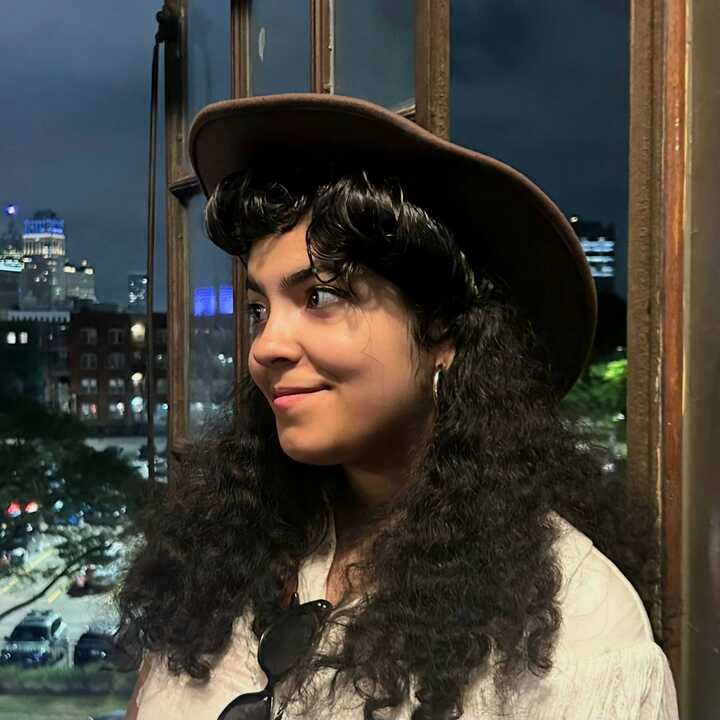
Cecilia Ledezma
UNDERGRADUATE PROGRAM ASSISTANT
Cecilia joined the Digital Studies Institute as a program assistant and graphic designer for Search Engines in 2023. She lead the visual development of Search Engine’s zine, Search History, through her creation of fold-out promotional handouts and 3D assets for its digital and print publications. She is in her third year of undergraduate study pursuing a triple major in English, German, and Translation as well as a minor in Digital Studies. Her academic interests center on language, gender, and digital culture, particularly the intersection of identity and online presence. She looks forward to beginning thesis work on these topics in her upcoming senior year.